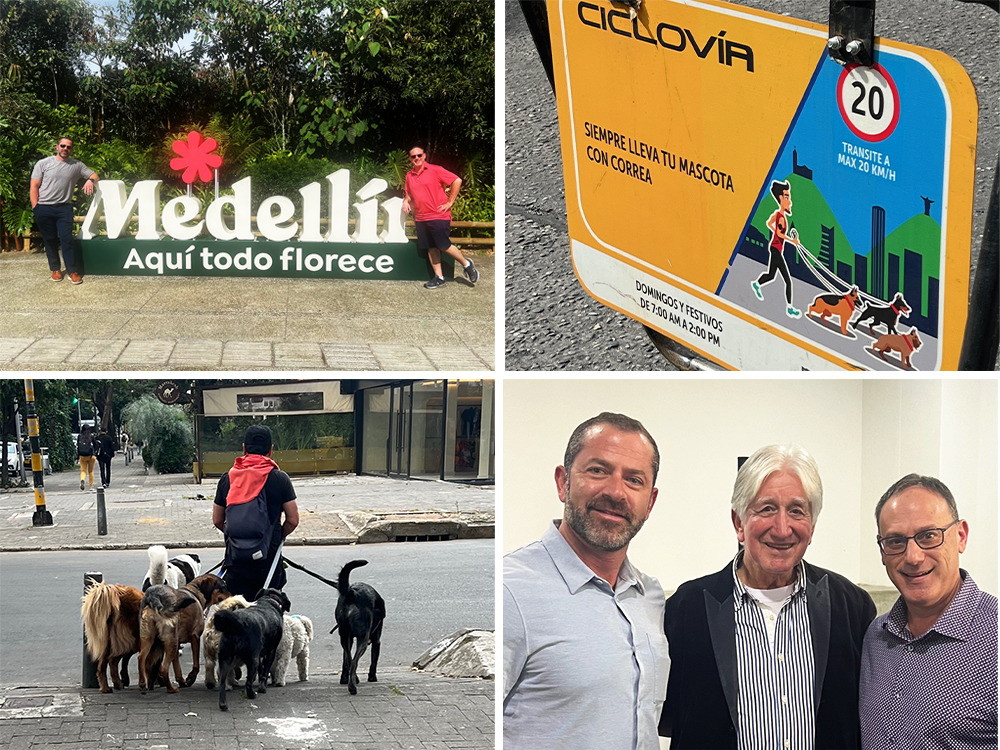Recently, Bryan Adler and I traveled to Colombia for a week-long trip as part of an elder law delegation from the National Academy of Elder Law Attorneys (NAELA), learning about the delivery of legal and social services to older adults in Colombia. Colombia is a fascinating, beautiful place. The people are warm and welcoming. Nursing homes generally do not exist. Virtually all take care of their loved ones at home. Walking multiple dogs at a time in Bogota seems to be a thing. I have no idea how the dogs are so well-behaved. There are still serious issues with the country recovering from the drug wars. Poverty is rampant on the outskirts of major cities, and the drug trade still flourishes in parts of the country. The citizens are forward-thinking and doing the best they can to improve the country and their own lives. For the most part, I felt very safe. Like the U.S., just be smart and don’t go to certain areas at night, especially alone.
The highlight of the trip was a lunch meeting with the Colombian neuroscientist Dr. Francisco Lopera. For decades, Dr. Lopera, at the University of Antioquia in Medellín, Colombia, has been caring for and following an extended family living outside of Medellin, many of whose members carry a tragically unlucky mutation in a gene called presenilin 1. The mutation is rare, and its effects are aggressive and predictable. By their late 20s, people who carry the mutation have brains clogged with the hallmark amyloid plaques that characterize Alzheimer’s disease. By their mid-30s, tangles of a different protein associated with Alzheimer’s (tau) appear. People carrying this gene begin to experience the first inklings of cognitive problems around age 44, and by 49, they have full-blown dementia. They typically die in their 60s. In total, scientists have discovered 1,200 people out of an extended family of more than 6,000 carrying this genetic time bomb.
However, a few in this population have defied the odds. Scientists discovered a genetic mutation that protected some of them, nicknamed Christchurch. Although the brains of these individuals were clogged with the characteristic amyloid plaques of Alzheimer’s, they were relatively free of the tangles of tau that are also associated with the disease. The goal, according to Dr. Lopera, is to duplicate this protective gene to delay the onset of Alzheimer’s Disease by decades. It was so exciting being in the same room with someone who may finally be close to a cure for Alzheimer’s disease. Will the world answer the call from Colombia?
If you are interested in Colombia, there is a great podcast called Colombia Calling. The podcaster, Richard McColl, was with us during our trip and has a wealth of information. Thank you, Colombia, for your generosity and hospitality.


